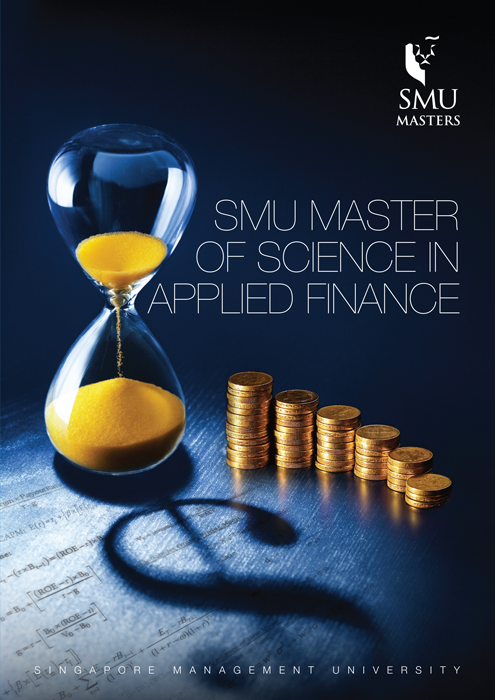
Home to over 1,200 financial institutions, Singapore is a global hub for finance. Its strategic location in the heart of Asia, strong credit rating, and tech readiness make finance careers in Singapore an attractive prospect for professionals the world over.
The sector is also undergoing some significant changes. “Disruption is becoming commonplace” comments John Sequeira, Associate Professor of Finance at Singapore Management University’s Lee Kong Chian School of Business (SMU LKCSB).
“The changing financial landscape will also see the displacement of many traditional jobs.”
John is one of the Directors for the Master of Science in Applied (MAF) program, which equips students with the skills they need to make their mark in this quickly-changing ecosystem.
Below are four things you need to know if you want to work in Singapore’s dynamic financial scene.
1. Fintech is growing fast
Singapore is fast becoming a fintech hub. In fact, around 43% of new Southeast Asian fintech companies chose Singapore as their base in 2019, drawn to its large skilled workforce, strategic location in Asia, and friendly tax regulations.
As Singapore opens up digital banking licenses, new players—like e-commerce, telecommunication, and tech companies—are likely to enter the financial sphere, spurring demand for digitally savvy finance professionals.
“To be successful in Singapore’s finance sector, you must develop a working knowledge of digital technology and data analytics, and understand how to harness them to bring value to employers and clients,” John notes.
"Roles that require this kind of digital literacy tend to command high salaries in today’s market," he adds.
To help graduates access these roles, the MAF program at SMU LKCSB is introducing a specific fintech track to its repertoire. Students who choose this track will study fintech topics ranging from Digital Transformation in Retail Banking Technology, to Analytics in Financial Services.
“The track will help to provide MAF graduates with strong job opportunities in this vibrant area, which is seeing significant growth,” says John.
2. Coronavirus is accelerating the pace of change
Fintech disruption has been commonplace for several years, but the coronavirus outbreak has sped up developments, John explains.
“The result of working from home, for instance, has opened the door to digital living—and growth in areas like e-commerce and tele-medicine,” he says. “These digitization efforts, along with the advancement of big data analytics, will affect all aspects of finance and investment operations.”
John also expects to see non-traditional financial players—particularly tech firms—entering the industry. With more diverse players in the ecosystem, ambitious professionals will need to learn quickly and be adaptable.
3. Soft skills are in demand
Although technical skills are crucial for success in finance, employers are also on the lookout for graduates with equally strong people skills.
In fact, according to the Graduate Management Admission Council (GMAC), 61% of employers believe that communication skills are becoming more important.
In Singapore’s financial landscape, many in-demand jobs require candidates who can communicate effectively with a wide range of people.
“Client and customer-facing roles especially require more than just technical skills in order to succeed,” John explains.
“As well as excellent communication skills, these roles require strong critical thinking skills, good cultural understanding, and resilience and adaptability.”
Students in the MAF program at SMU LKCSB have ample opportunities to develop soft skills like these, John adds. In-class discussions, group work, networking events, and a dedicated career services team help students take their communication, organization, and critical thinking skills to the next level.
4. Green finance is growing
Promoting sustainable finance is a key goal for the Monetary Authority of Singapore (MAS)—the country’s financial regulator—and several green finance initiatives have developed over the years.In 2017, the MAS launched a Sustainable Bond Grant Scheme, which offers grants to cover the cost of externally reviewing a green bond against sustainability criteria.
All the proceeds generated by green bonds are used for sustainable projects, in areas like renewable energy, pollution control, or clean public transport.
“Green finance is increasingly making its mark, as financial institutions and regulators recognize the implications of climate change risks for the financial sector,” John explains.
“Opportunities are opening up in green and sustainable finance, or impact investing. That is becoming increasingly attractive as the MAS encourages the financial sector and corporates to work together with their green efforts.”
These green initiatives, combined with Singapore's openness to new financial technologies and its economic stability, are creating an ecosystem brimming with opportunities for business school graduates with the right combination of hard and soft skills.
Studying finance in the heart of Singapore, through a program like MAF, can help you grasp these opportunities.
"What makes the MAF program so credible is that it provides a strong foundation in the principles, practices, and operations of international and domestic financial markets, focusing on applying up-to-date knowledge in real-world situations," John concludes.
This article was reproduced with permission from BusinessBecause.com (October 28, 2020)
Speak to our Admissions Advisors
Lee Kong Chian School of Business
Postgraduate Admissions
Singapore Management University
Lee Kong Chian School of Business
Graduate Programmes Office, Level 4
50 Stamford Road, Singapore 178899
Tel: +65 6828 0882
